As everyone knows, the Harry Potter novels are a beloved series later adapted into popular high-grossing films. The biggest obstacle the film conversions had to overcome was finding room for the lengthy content of the novels in a feature-length film. Due to this time constraint, the series had to be shrunk down and several key scenes were omitted. Many of these cut scenes detract from the charm of the series but in addition, the omission of several details actually turn the films into somewhat of a confusing mess for those that didn’t previously read the books. The following are the 10 most impactful moments from the novels that should have found their way into the films. It should go without saying but heavy SPOILERS to follow.
10. The Order of the Phoenix Quidditch Season
The Quidditch season is removed entirely from the fifth film, which is a shame since it plays a very prominent role in the novel. The main appeal was Ron Weasley joining the team as a keeper, replacing departed captain Oliver Wood. This was a tremendous growth opportunity for Ron, one in which the character really develops and steps out of Harry’s shadow. When Gryffindor wins the Quidditch Cup this year, Harry has been suspended from the team and it is Ron that carries them to victory. This triumphant character arc was sadly omitted due to time constraints, which is a real shame because it leaves Ron with less to do in the film adaptation. His growth was important for the novel and while Quidditch would return in the sixth film with Ron auditioning for the role at that point, it feels like too little, too late for his character development.
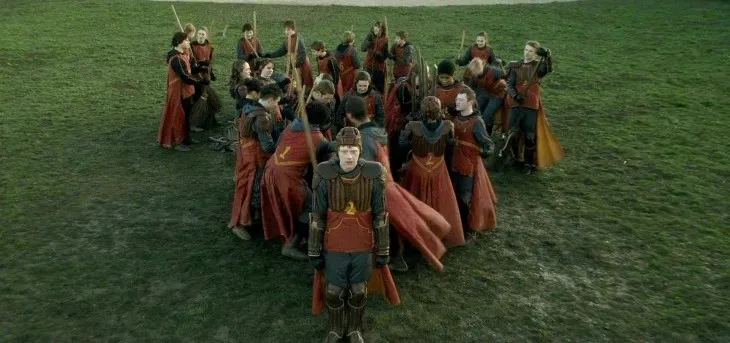 Source: Screenshot via Warner Bros. Pictures
Source: Screenshot via Warner Bros. Pictures9. Peter Pettigrew’s Death
During the film, The Deathly Hallows Part 1, Peter Pettigrew, the despicable Death Eater who betrayed Harry’s parents and later helped bring Voldemort back to human form, has a death scene that varies wildly from the novel. During the film, the house-elf Dobby stuns Pettigrew from behind and Pettigrew collapses. There is some ambiguity regarding whether Dobby kills him but that’s impossible knowing that house-elves can’t commit murder. However, in the next installment, Pettigrew has simply disappeared and is never heard from again. The offensive part of this sequence is that his death in the novels is a plot point that is heavily built-up throughout several books. When Harry allows him to escape during The Prisoner of Azkaban, Dumbledore insists that Pettigrew now owes Harry his life and that things will even out. During the final novel, when Pettigrew is instructed to murder Harry, he begins choking Harry only to have his artificial hand betray him and strangle him. He dies by his own hand, a clever bit of irony on author J.K. Rowling’s part.
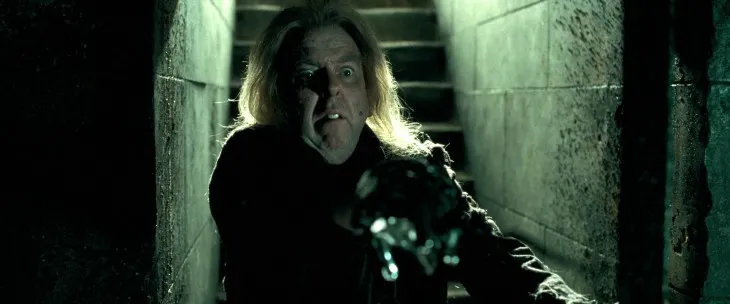 Source: Screenshot via Warner Bros. Pictures
Source: Screenshot via Warner Bros. Pictures8. The Two-Way Mirror
When Sirius gives Harry one half of a magical mirror used to communicate with him during The Order of the Phoenix, Harry stuffs it away and vows not to use it. Little does Harry know that the mirror would play an important role in the plot of the last novel. The film adaptation of The Order of the Phoenix cut out the mirror entirely, which is understandable because at the time it didn’t seem overly important. However, the filmmakers didn’t anticipate the role the mirror would play in the final novel, and its exclusion is jarring in hindsight. When the mirror makes an appearance in the final film, its origin and significance are not explained, leaving audience members who did not read the novels utterly perplexed. Furthermore, since the character of Phineas Black was cut from the films entirely, there is a gaping plot hole on how Severus Snape even finds Harry and Hermione while they’re in the Forest of Dean. Those that read the novels understood, of course, but those expecting an explanation from the films were left somewhat bewildered.
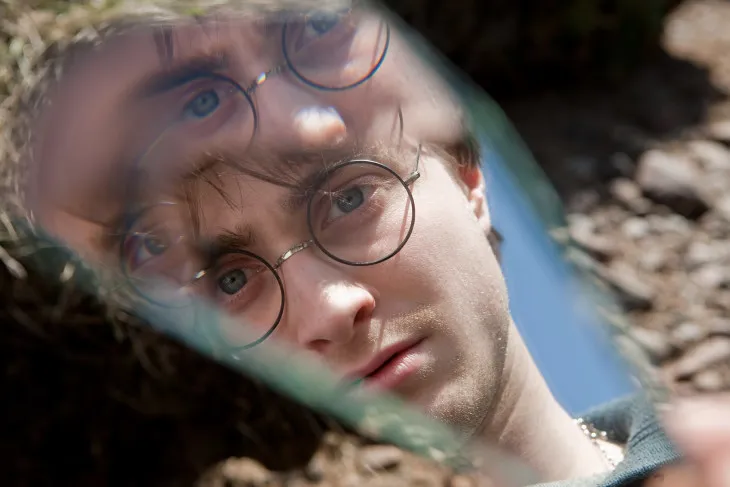 Source: Screenshot via Warner Bros. Pictures
Source: Screenshot via Warner Bros. Pictures7. The Marauders
The characters Lupin, Pettigrew, Sirius, and James (known as Moony, Wormtail, Padfoot and Prongs) receive significant backstory during The Prisoner of Azkaban novel, with their childhood friendship playing an integral role in the story. During the film, this plotline is largely ignored, greatly reducing the emotional impact made when Sirius Black reveals himself to have never betrayed Harry and James. Furthermore, these four are the authors of “The Marauder’s Map,” a magical map of Hogwarts complete with secret entrances and the whereabouts of every being in the school. The film simply neglects to mention this rather important detail. Some scenes obviously had to be cut due to time constraints, but this one is simply inexcusable. This crucial piece of information is important in the development of the series’ lore and Lupin could have easily provided these details, as it would have taken a very little amount of screen time.
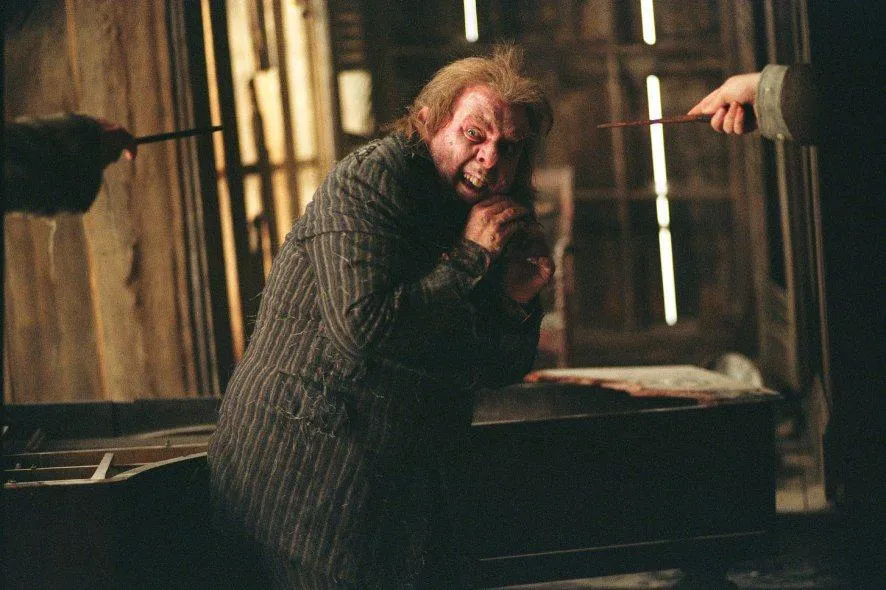 Source: Screenshot via Warner Bros. Pictures
Source: Screenshot via Warner Bros. Pictures6. Marietta Edgecombe
One of the more startling differences between the novels and the films is the entire removal of the character Marietta Edgecombe. A Ravenclaw sixth year student who is good friends with Cho Chang — Harry’s love interest throughout the early novels — Marietta Edgecombe is the character that betrayed the secret organization named “Dumbledore’s Army” by revealing its existence and whereabouts to Professor Umbridge. During the film, because the character doesn’t exist, it is Cho Chang herself that unwittingly reveals the organization’s existence while under truth serum. This changes the dynamics of the relationship between Harry and Cho significantly, as there is now no justifiable reason for their parting of ways. While other scenes on this list were omitted due to time constraints, not putting Marietta into the films is just plain baffling, as it detracts from one of Harry’s most important coming-of-age moments.
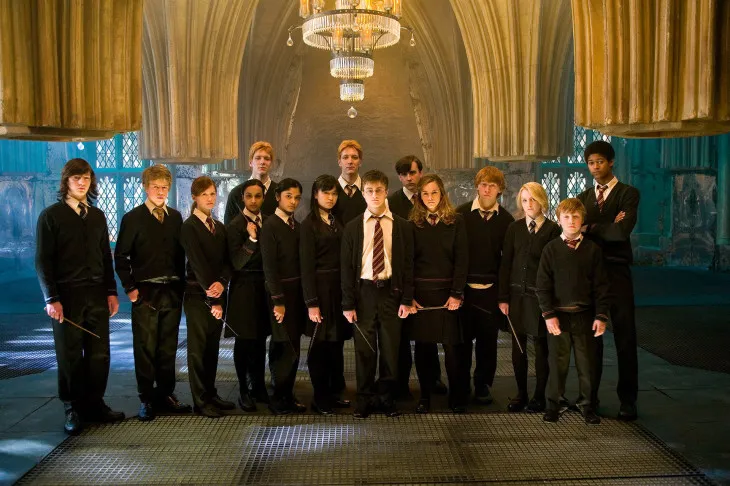 Source: Screenshot via Warner Bros. Pictures
Source: Screenshot via Warner Bros. Pictures5. Triwizard Winnings
This may seem trivial; however, the omission of the Triwizard Tournament have a monetary prize for the winner presents a gaping plot hole in the films that could have been very easily avoided. When Harry wins the tournament during The Goblet of Fire, he is supposed to earn a 1000 Galleon cash prize, which is a significant amount. Harry, so disgusted and distraught after witnessing the death of Cedric Diggory, gives the entire fortune to the Weasley twins, Fred and George. With this money, the twins are able to open their joke shop in the following novel. During the novels, it’s even mentioned several times how nervous Harry is about their mother discovering how they got the gold to fund their operation. In the films, the monetary prize is never directly referenced; therefore, Harry has nothing to give to Fred and George. The Weasley family is extremely poor, meaning that without Harry’s generous donation, it seems illogical for these 17-year-old twins to suddenly have an inheritance large enough to open their own store.
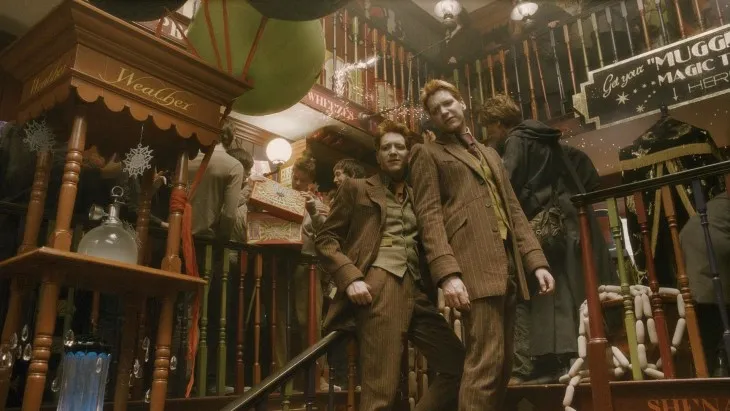 Source: Screenshot via Warner Bros. Pictures
Source: Screenshot via Warner Bros. Pictures4. Finding The Locket
The famous locket that turns out to be a Horcrux — a piece of Voldemort’s soul — made a brief appearance during The Order of the Phoenix as a seemingly inconsequential piece of jewelry. When Harry, Ron, and Hermione attempt to clean the Black family house, they encounter many dangerous and mysterious objects but none prove to be as important as this locket. Attempting with all their might to open the locket in order to see if there is a valuable inside, the group eventually deem it worthless and throw it in the trash. Two novels later, Harry, Ron, and Hermione would need to track down the locket and when readers discover that they had read about the locket previously, it makes for a great callback to a seemingly insignificant event from two novels previous. The film’s removal of this scene is understandable, as the final book had not been written at the time it went into production and therefore its creators could not have anticipated the locket’s importance. Unfortunately, that doesn’t make it any less of a glaring plothole during a rewatch.
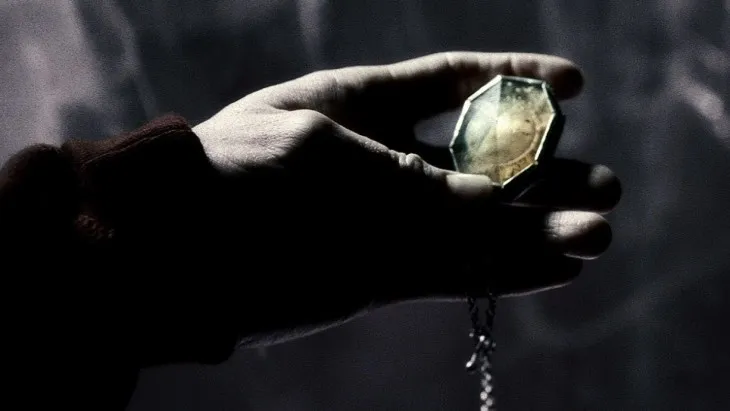 Source: Screenshot via Warner Bros. Pictures
Source: Screenshot via Warner Bros. Pictures3. S.P.E.W.
The Society for the Promotion of Elfish Welfare (or S.P.E.W. for short) was an organization that Hermione founded during The Goblet of Fire in order to raise awareness regarding the mistreatment of house-elves. S.P.E.W. is mainly present in the novel for comic relief; however, it does lead to Harry and Hermione’s discovery of Dobby the house-elf working at Hogwarts, as well as the revelation that Winky the house-elf (a character not present in any of the films) having been dismissed by her owner Barty Crouch. S.P.E.W. is omitted from the films entirely and its exclusion would have a negative effect on the finale of the series. Ron, who didn’t care for the rights of elves throughout the series, indicates during the final novel that one of the reasons the students must fight is in order to save the elves. This prompts Hermione and Ron to finally share their first kiss. Due to the lack of S.P.E.W. in the films, their first kiss is neither as dramatic or as romantic as it was in the novel.
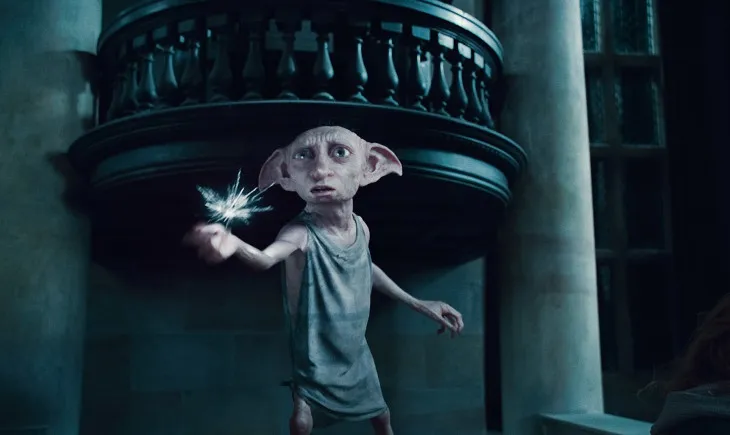 Source: Screenshot via Warner Bros. Pictures
Source: Screenshot via Warner Bros. Pictures2. The Half-Blood Prince
The moniker of the Half-Blood Prince is first mentioned in Harry’s sixth-year potions book, where a student has added alternate directions to potion-making that prove to be superb. In this potions book, the author labels himself “The Half-Blood Prince” and readers are left to wonder about his identity. Of course, the mystery turns out to be right in front of them, as the Prince is none other than Harry’s potions master Severus Snape. Due to his father being of Muggle descent and his mother having the maiden name Prince, Snape created this moniker for himself while still a student at Hogwarts. Conversely, in the film adaptation, the speech that Snape gives Harry during their battle is mostly cut and the only remainder is Snape uttering the line, “I am the Half-Blood Prince,” as he flees the castle. Audiences are left totally in the dark regarding the title’s meaning and without reading the books can’t possibly follow along. Since far more impactful plot points were removed from the film versions, this particular omission wouldn’t be such a big deal except for one major element: it’s the title of the film! The fact that the filmmakers thought not divulging the full story of the sixth book’s title to audiences remains questionable.
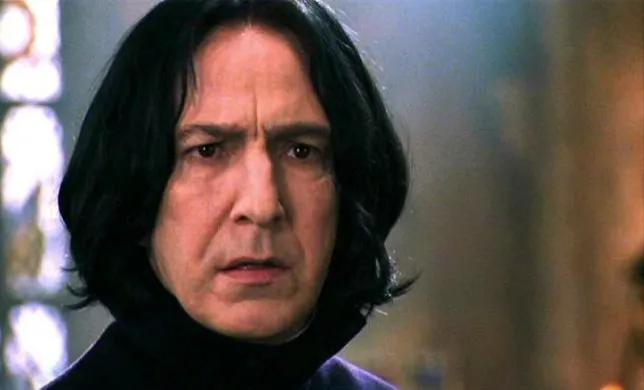 Source: Screenshot via Warner Bros. Pictures
Source: Screenshot via Warner Bros. Pictures1. Ravenclaw’s Diadem
During a section of the novel The Half-Blood Prince, Harry is in a rush to hide his incriminating potions book and enters the Room of Requirement. In the room, he finds a bust with a wig and tiara, an odd combination he knows he will remember. Readers would remember it as well, as the tiara turns out to be the final Horcrux: the missing Diadem of Ravenclaw. Unfortunately, the film version doesn’t include this crucial plot point as Harry never encounters the tiara during the sixth film. This prompted the filmmakers to make a change to the story in the final film. Rather than realizing where Ravenclaw’s Diadem is because he’s seen it before, Harry is able to locate the Horcrux because he can “sense” where it is by being attuned to their locations by their heartbeats. No adaptation change infuriated fans more than this one and it perfectly encompasses why those who hold the novels in such high regard are often offended by the films.
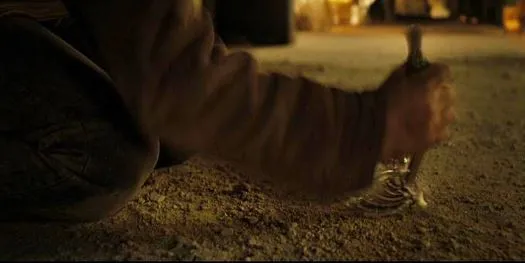 Source: Screenshot via Warner Bros. Pictures
Source: Screenshot via Warner Bros. Pictures